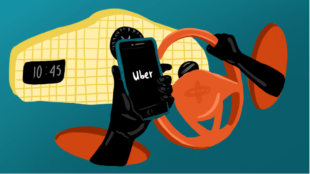Proposition 22: What Does Your Uber Driver Deserve?
(Source) On November 3, 2020, in the throes of one of the most contentious presidential elections in history, all eyes at Uber and Lyft were on California. The rise of the gig economy—a labor market that relies on independent contractors and freelance workers outside of traditional labor regulations—is a major subject of discussion among legislators across the nation. California’s efforts to reform and regulate the gig economy hinged on the passage or failure of Proposition 22 (“Prop 22”), a ballot initiative that defines app-based transportation and delivery drivers as independent contractors with their own personalized labor and wage policies. The gig economy titans spent more than $200 million on their campaign in support of the measure, the most expensive in the state’s history. This past November, the titans rejoiced: Prop 22 had passed with 58% of the vote. But what does Prop 22 mean for California’s app-based drivers, and what are its consequences for gig economy workers nationwide? Gig economy giants, such as Uber and Lyft, assert that their app-based drivers are independent contractors, not employees. As independent contractors, drivers are exempted from major traditional protections under the National Labor Relations Act (“NLRA”) and other social protections like unemployment, workers [read more]

